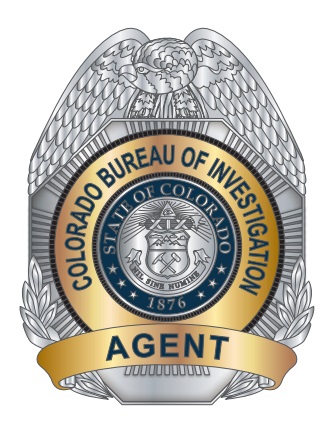Human Trafficking
Colorado Bureau of Investigation - Human Trafficking & Child Exploitation
The CBI is primarily an "assist" agency, responding to requests for investigative services from law enforcement, district attorneys and other state agencies. CBI has a dedicated investigative team that assists local Colorado law enforcement in identifying, investigating, and abolishing human trafficking across the state. This team also investigates related sex crimes, to include child sexual abusive material and various other online sexual crimes at the request of other law enforcement agencies.
We are partnered with the Homeland Security Investigations Colorado Cyber Guardian Task Force, which has similar goals and missions when it comes to defeating these heinous crimes.
Human Trafficking in Colorado
Colorado statute defines two kinds of human trafficking: labor trafficking and sex trafficking.
Click on the tabs to learn about the different types of human trafficking that the Colorado Bureau of Investigation will investigate.
To find more information on Laws & Legislation, please visit the Colorado Human Trafficking Council.
As defined by the National Human Trafficking Hotline: Labor trafficking is a form of modern-day slavery in which individuals perform labor or services through the use of force, fraud, or coercion.
Labor trafficking includes situations of debt bondage, forced labor, and involuntary child labor. Labor traffickers use violence, threats, lies, and other forms of coercion to force people to work against their will in many industries.
Common types of labor trafficking include people forced to work in homes as domestic servants, farmworkers coerced through violence as they harvest crops, or factory workers held in inhumane conditions with little to no pay.
In Colorado, the crime of labor trafficking can be found under Colorado Revised Statute 18-3-503 and is defined as:
“A person who knowingly sells, recruits, harbors, transports, transfers, isolates, entices, provides, receives, or obtains by any means another person for the purpose of coercing the other person to perform labor or services commits human trafficking for involuntary servitude.”
CRS 18-3-503 makes it a felony under Colorado state law to traffic anyone for involuntary servitude.
As defined by the National Human Trafficking Hotline: Sex trafficking is a form of modern-day slavery in which individuals perform commercial sex through the use of force, fraud, or coercion. Minors under the age of 18 engaging in commercial sex are considered to be victims of human trafficking, regardless of the use of force, fraud, or coercion.
Sex traffickers frequently target victims and then use violence, threats, lies, false promises, debt bondage, or other forms of control and manipulation to keep victims involved in the sex industry for their own profit.
Sex trafficking exists within diverse and unique sets of venues and businesses including fake massage businesses, escort services, residential brothels, in public on city streets and in truck stops, strip clubs, hostess clubs, hotels and motels, and elsewhere.
In Colorado, the crime of sex trafficking of adults and minors if the victim is under 18 years of age can be found under Colorado Revised Statute 18-3-504 and is defined as:
"A person who knowingly sells, recruits, harbors, transports, transfers, isolates, entices, provides, receives, or obtains by any means another person for the purpose of coercing the person to engage in commercial sexual activity commits human trafficking for sexual servitude."
CRS 18-3-504 makes it a felony under Colorado state law to traffic anyone for sexual servitude.
What Do I Do if I Have Information?
Tips
To report suspected human trafficking, please contact Colorado's Human Trafficking Hotline, run by the Laboratory to Combat Human Trafficking.
Call (24/7 Hotline) 866-455-5075
Text "Help" to 720-999-9724
Visit their website for more information at: https://combathumantrafficking.org/hotline/
If you or someone you know appears to be in immediate danger or needs an immediate response from law enforcement, please contact your local police department or sheriff's office.
